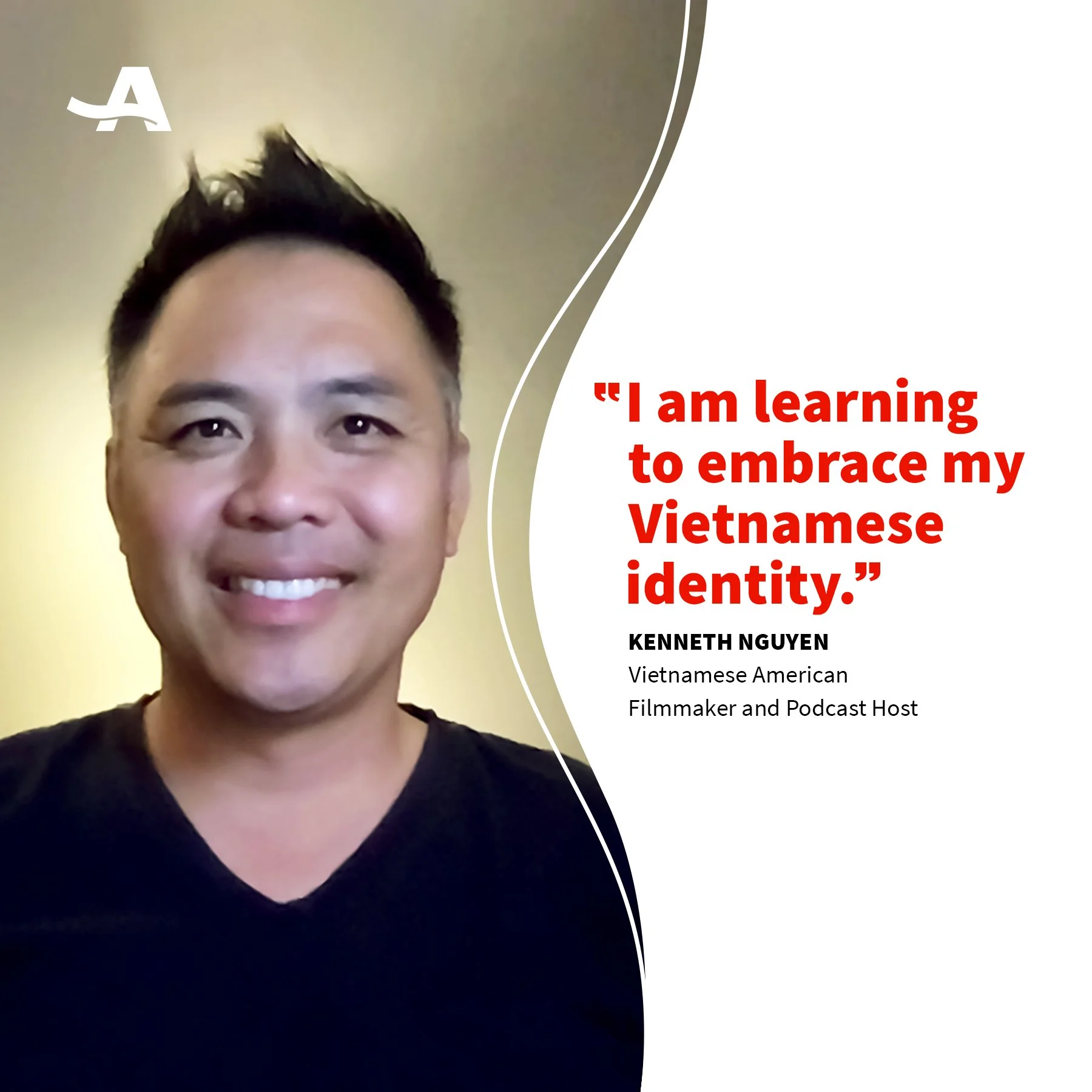I used to be very ashamed of my Vietnamese identity
Asian American Courage
With anti-Asian racism and violence threatening our communities, how do we draw courage from our parents’ struggles and experiences, so we can find our own strength and find the language to share this with our children?
Kenneth Nguyen admits to being racist against his own culture in the past. In a journey to heal, a platform for conversations on diversity and heritage helps him move towards self-forgiveness.
“I used to be very ashamed of my Vietnamese identity. I didn’t even want to go out with Asian women. I realize now that it was because I didn’t want to see myself in my partner. I was projecting the dislike and the distaste I had for myself onto others.
“I wanted to get closer to whiteness and get further away from my Vietnamese roots. Growing up, I saw Asian men being looked down upon as weak and frail. In billboards and movies, all the media I consumed featured white people and that became the standard of beauty and power. All I saw were images of white people being supreme. I'm six feet tall but, in my mind, I was never enough to fit into American society.
“At 17, I joined the Marine Corps with my brother to prove that we were strong American men. My parents were disappointed. They left Vietnam right before the fall of Saigon in 1975. I signed up for the adventure; I didn’t really know what I was getting into. But in a way, it was a good thing. The experience taught me to understand structure, discipline, and what it takes to actually lead from the front.
“I host a podcast where I speak to different amazing Vietnamese people around the world about why it’s so important to maintain our heritage. I am learning so much about what this means and how diverse our experiences are. In some way, these conversations have become part of my healing process as I move towards forgiving myself for my own racist past.
“Having that point of reflection offers me a way to understand the broader world and to have compassion even for people who don't have sympathy for the Asian community. I’ve lived it on both sides. If I can understand them, maybe I can figure out a way to work in conjunction with them. The potential for people of all colors to be open and accepting is just so important.”




